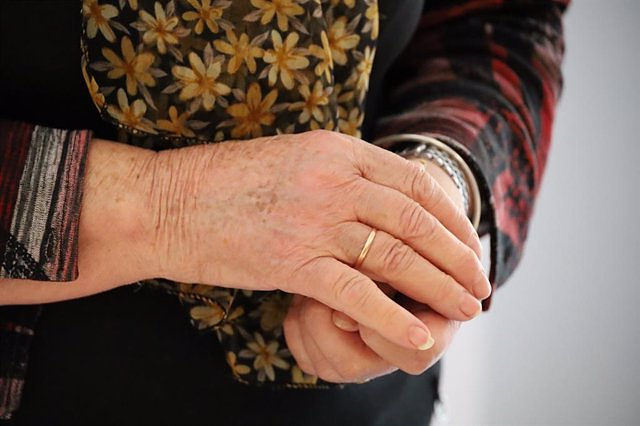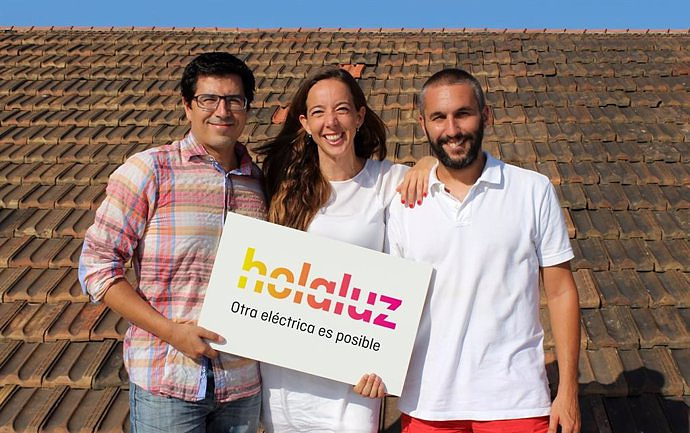He agrees with the woman in concluding that she should not have been forced to "bend over backwards" to receive the grant
MADRID, 26 Ene. (EUROPA PRESS) -
The European Court of Human Rights (ECHR) has endorsed this Thursday that the widow's pension be granted to a Spanish woman who registered their relationship three days before her partner died in July 2014, although she did so three months after it was established. the requirement that the couple must be registered for at least two years before the death of one of them, considering that a grace period should have been established to demand said requirement.
In a sentence, collected by Europa Press, the court based in Strasbourg has agreed - by four votes against three - to condemn Spain, considering that it violated the right of women, although it has not set compensation to be paid because the widow He did not request any economic compensation to repair the damage.
As the court has explained, in this case "the most appropriate way" to repair the damage would be to review the final decisions adopted by the Spanish courts because they constituted a violation of the European Convention on Human Rights. The decision of the court has had the concurring particular vote of two of the magistrates and the dissenting particular vote of three others.
The court has studied the case of a Spanish woman who was denied a widow's pension by the National Social Security Institute (INSS). According to the resolution, the plaintiff lived in Catalonia with her partner -with whom she had a daughter- "uninterruptedly" for more than eight years; but he died in July 2014, three days after she registered her civil union.
At that time, one of the requirements to access the subsidy – which came into force three months before the man died – was that the couple had been registered for at least two years before the death of one of the two. The woman applied for the widow's pension before the INSS and, given the refusal of the Administration, she went to the national courts. She took her case to the Supreme Court and then to the Constitutional Court. Dissatisfied with the result, she filed a lawsuit before Strasbourg.
The ECHR has sided with the woman in concluding that she should not have been forced to "do the impossible" to receive the widow's pension. The magistrates have criticized the fact that there was no "transitional period" or a grace period for those cases close to the date on which the requirement in question was established.
"The requirement to formalize the civil union at least two years before the death of one of the members of the couple simply turned out to be, in the case of the plaintiff, one that was impossible to fulfill," the court said.
The magistrates have stressed that although Spain has a "broad margin of appreciation in the choice of the measures that govern pensions" it is not justified that there are no transitional provisions that respond to situations such as that of the plaintiff.
In 28 pages, the ECHR has explained that it sees no reason why the woman and her partner were obliged to formalize their union by means of a public document since 2012, when the Constitutional Court admitted the question of unconstitutionality for processing because the court of guarantees did not rule until April 2014, "only three months before the claimant became a widow".
In addition, the magistrates have ensured that the Administration's argument that the couple "always" had the freedom to marry and did not "is irrelevant", since the regulations provided for widow's pensions for common-law couples.
In this sense, the court has insisted that the plaintiff "had a legitimate basis to assume that she would be eligible for a widow's pension in the event of the death of her partner." And it has concluded that it has not been proven that the fact that they formalized their relationship three days before he died could be taken as an indication of fraud.
From the ECtHR they have recalled that the Constitutional Court ruling indicated that the new requirement by which couples subject to Catalan civil law had to formalize their respective unions "would only refer to new applications or those for which a sentence had not yet been issued." ". It has also specified that the applicant's case was one of those cases.
Thus, it has considered that denying a widow's pension to women "should be considered as an interference in their right to the peaceful enjoyment of their possessions."
Already last week, the ECHR The European Court of Human Rights (ECHR) has concluded that the obligation to register the relationship cannot be applied retroactively to those who have claimed the widow's pension before 2014, when the Constitutional Court established said requirement.

 Exploring Cardano: Inner Workings and Advantages of this Cryptocurrency
Exploring Cardano: Inner Workings and Advantages of this Cryptocurrency Seville.- Economy.- Innova.- STSA inaugurates its new painting and sealing hangar in San Pablo, for 18 million
Seville.- Economy.- Innova.- STSA inaugurates its new painting and sealing hangar in San Pablo, for 18 million Innova.- More than 300 volunteers join the Andalucía Compromiso Digital network in one month to facilitate access to ICT
Innova.- More than 300 volunteers join the Andalucía Compromiso Digital network in one month to facilitate access to ICT Innova.-AMP.- Ayesa acquires 51% of Sadiel, which will create new technological engineering products and expand markets
Innova.-AMP.- Ayesa acquires 51% of Sadiel, which will create new technological engineering products and expand markets The Community will provide facilities and support to the Bullfighting Prize with the help of the Toro de Lidia Foundation
The Community will provide facilities and support to the Bullfighting Prize with the help of the Toro de Lidia Foundation Page will contact the bullfighting sector to create, from C-LM, Bullfighting Awards that will have national reach
Page will contact the bullfighting sector to create, from C-LM, Bullfighting Awards that will have national reach Urtasun, on eliminating the National Bullfighting Award: "The majority of Spaniards support the decision I have made"
Urtasun, on eliminating the National Bullfighting Award: "The majority of Spaniards support the decision I have made" Alfonso Guerra sees Sánchez in an "autocratic" drift and accuses him of generating division "between the two Spains"
Alfonso Guerra sees Sánchez in an "autocratic" drift and accuses him of generating division "between the two Spains" How Blockchain in being used to shape the future
How Blockchain in being used to shape the future Not just BTC and ETH: Here Are Some More Interesting Coins Worth Focusing on
Not just BTC and ETH: Here Are Some More Interesting Coins Worth Focusing on The Generalitat calls for aid worth 4 million to promote innovation projects in municipalities
The Generalitat calls for aid worth 4 million to promote innovation projects in municipalities UPV students design an app that helps improve the ventilation of homes in the face of high temperatures
UPV students design an app that helps improve the ventilation of homes in the face of high temperatures Ivace and promotes a less invasive device for the early detection of prostate cancer
Ivace and promotes a less invasive device for the early detection of prostate cancer Valencia unanimously approves the ordinance to allocate spaces to test innovative initiatives
Valencia unanimously approves the ordinance to allocate spaces to test innovative initiatives A million people demonstrate in France against Macron's pension reform
A million people demonstrate in France against Macron's pension reform Russia launches several missiles against "critical infrastructure" in the city of Zaporizhia
Russia launches several missiles against "critical infrastructure" in the city of Zaporizhia A "procession" remembers the dead of the Calabria shipwreck as bodies continue to wash up on the shore
A "procession" remembers the dead of the Calabria shipwreck as bodies continue to wash up on the shore Prison sentences handed down for three prominent Hong Kong pro-democracy activists
Prison sentences handed down for three prominent Hong Kong pro-democracy activists ETH continues to leave trading platforms, Ethereum balance on exchanges lowest in 3 years
ETH continues to leave trading platforms, Ethereum balance on exchanges lowest in 3 years Investors invest $450 million in Consensys, Ethereum incubator now valued at $7 billion
Investors invest $450 million in Consensys, Ethereum incubator now valued at $7 billion Alchemy Integrates Ethereum L2 Product Starknet to Enhance Web3 Scalability at a Price 100x Lower Than L1 Fees
Alchemy Integrates Ethereum L2 Product Starknet to Enhance Web3 Scalability at a Price 100x Lower Than L1 Fees Mining Report: Bitcoin's Electricity Consumption Declines by 25% in Q1 2022
Mining Report: Bitcoin's Electricity Consumption Declines by 25% in Q1 2022 Oil-to-Bitcoin Mining Firm Crusoe Energy Systems Raised $505 Million
Oil-to-Bitcoin Mining Firm Crusoe Energy Systems Raised $505 Million Microbt reveals the latest Bitcoin mining rigs -- Machines produce up to 126 TH/s with custom 5nm chip design
Microbt reveals the latest Bitcoin mining rigs -- Machines produce up to 126 TH/s with custom 5nm chip design Bitcoin's Mining Difficulty Hits a Lifetime High, With More Than 90% of BTC Supply Issued
Bitcoin's Mining Difficulty Hits a Lifetime High, With More Than 90% of BTC Supply Issued The Biggest Movers are Near, EOS, and RUNE during Friday's Selloff
The Biggest Movers are Near, EOS, and RUNE during Friday's Selloff Global Markets Spooked by a Hawkish Fed and Covid, Stocks and Crypto Gain After Musk Buys Twitter
Global Markets Spooked by a Hawkish Fed and Covid, Stocks and Crypto Gain After Musk Buys Twitter Bitso to offset carbon emissions from the Trading Platform's ERC20, ETH, and BTC Transactions
Bitso to offset carbon emissions from the Trading Platform's ERC20, ETH, and BTC Transactions Draftkings Announces 2022 College Hoops NFT Selection for March Madness
Draftkings Announces 2022 College Hoops NFT Selection for March Madness























